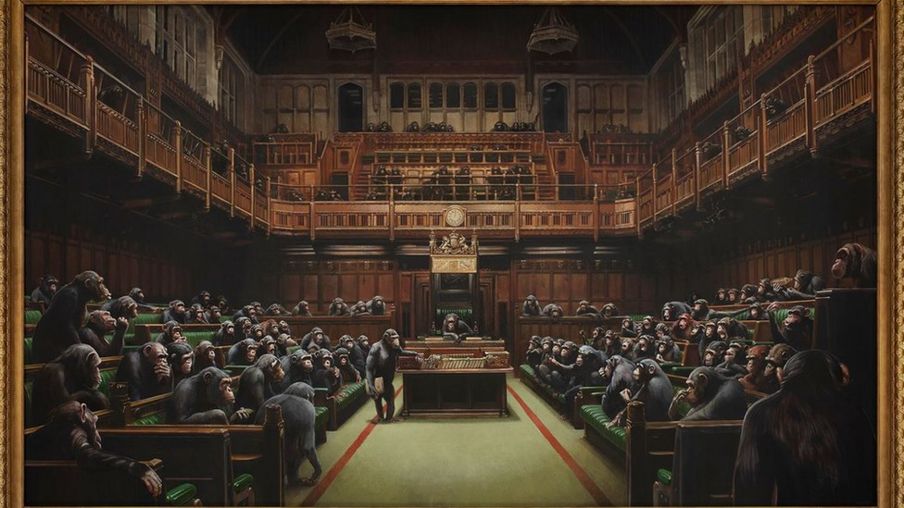I used to think we are smarter than dolphins and whales but I'm not of the opinion if they had opposable thumbs, we'd probably be the by-catch of their factory-hunting operations rather than the other way around.
I suspect that it doesn't have crucially to do with limbs or easy to turn/use protrusions. Octopodes have far more efficient limbs than humans (and eight of them
 ) but still don't appear to ever produce anything to advance their state in a manner which is visible outwardly and can be progressed. On the other hand, take something like some species of ants which have at some early point developed agriculture (fungi cultivation) and animal husbandry (using smaller insects for their secretions), and then apparently just stopped advancing.
) but still don't appear to ever produce anything to advance their state in a manner which is visible outwardly and can be progressed. On the other hand, take something like some species of ants which have at some early point developed agriculture (fungi cultivation) and animal husbandry (using smaller insects for their secretions), and then apparently just stopped advancing.I have to assume that cosmic (here meant as having to do with the external world) advancement of a being is severely dependable on dynamics of its mental life. Even apes (not counting their relatives, humans) seem to not advance, and they clearly have more in common with humans than any other species on earth. Yet are stuck in a loop; which doesn't mean internal development and flux isn't there, but in this model it would connote that more powerful checks keep it from resulting to anything tangible to observers:

Last edited:


 This seems to be saying that, because beach sand can't be used, they use beach sand.
This seems to be saying that, because beach sand can't be used, they use beach sand. 
